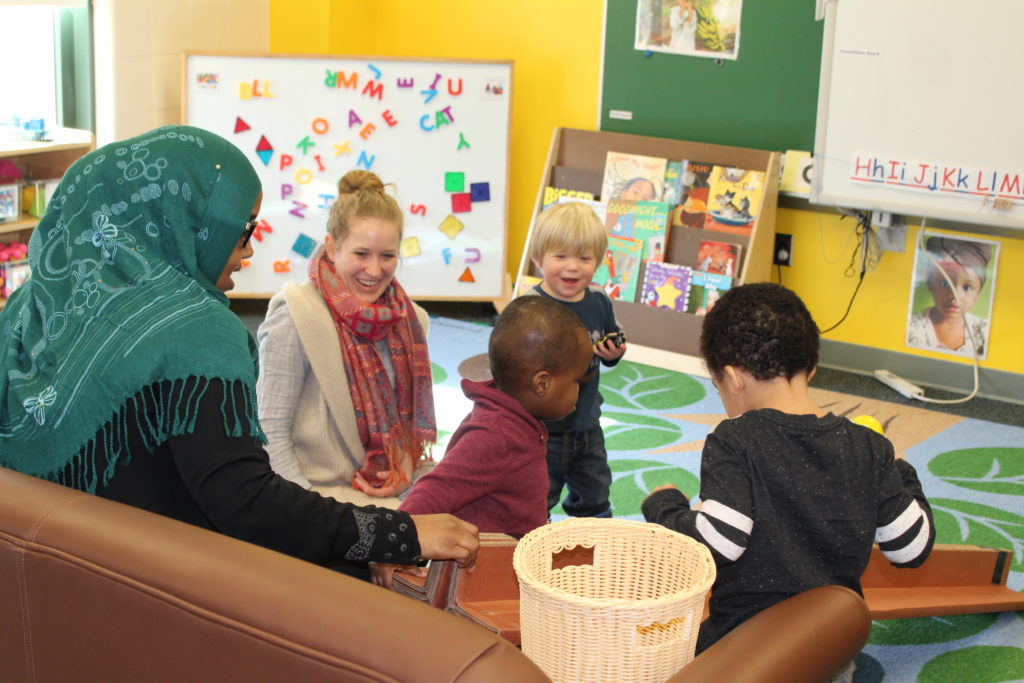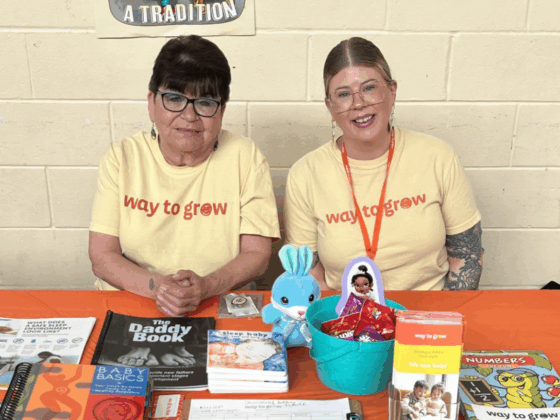Starting early developing social skills in children prepares them for healthier interactions in all aspects of their lives. Having social skills is an integral value in all functioning societies. Communicating properly with others, demonstrating good manners, expressing personal needs, and being considerate of feelings are all important components of solid social skills.
Play to Grow is a free weekly early learning class that provides curriculum-based learning opportunities for parents and children under the age of five. During these sessions, families have access to Family Educators for home visits, health, early education, and to Resource Advocates for connections to services. Play to Grow not only offers great socialization opportunities for the children, but is an environment where parents can socialize with one another and ask our Resource Advocates for advice.
Many children, like some adults, are more naturally inclined to adapt to social situations than others, making them the type of people that others gravitate to and for whom making friends is an easy process. While social skills can be learned, it is important that children are able to form meaningful and genuine bonds with others. These bonds will help them empathize and interact appropriately and allow them to adapt and navigate uncomfortable situations and environments.
One should not assume that children play just to pass the time. Actually, children gain most of their skills through playing. Playtime allows them to express interests, bond with others over shared interests, and explore and shape the world around them, and it gives parents the opportunity to teach their children new skills while playing. During these child-parent playtime moments, it is important for you to reinforce those learned skills by providing positive feedback. This will allow the child to feel more confident and secure in their development.
Feelings are an important aspect of social skills. As children grow older, it is important for parents to discuss feelings with their children. These discussions will allow them to understand and interpret the feelings of others, as well as their own. Feelings are a form of expression, so when children learn words associated with those feelings, they can later use them to talk about their emotions instead of acting out frustrations.
The following strategies can enhance a child’s social development:
Teach empathy: Provide examples of different scenarios and ask the child how other people might feel when certain things happen, then substitute different situations each time.
Talk about personal space: Explain that personal space is one’s own area around them that makes them feel comfortable. Run through what would be their own personal space, why it is important, and proper ways to interact with others during playtime.
Practice social cues: Teach children the proper way to get someone’s attention, join a group of others who are already playing together, and ways to start conversations with others.
Teach sharing and taking turns: Sit with your child for at least an hour a day to play with them and explain what it means to wait, take turns, and share.
By practicing social skills, children will have the ability to build gratifying relationships with others and adjust to different environments in society with ease. As children grow older, they interact more with people in situations and environments where direct supervision by parents is not possible. Being able to draw from what they learned from home and educational settings about socializing, children make friends within their peer group that will help refine their skills as they grow and mature.
These friendships are important for all children to develop and need to be given the opportunity to at all ages. Friends serve central and vital functions and fulfill children in ways that parents cannot, and they play a crucial role in helping define themselves and develop their sense of identity.
As mentioned earlier, while social skills can be learned, teaching them can be learned as well. If you or you know of a parent that would like assistance in all aspects of social skills development, please refer them to Way to Grow and Play to Grow, as we cover all skills mentioned in this blog.
Play to Grow is held every Wednesday from 10:00 AM to 11:30 AM at Lucy Laney at Cleveland Park Community School (3333 Penn Ave N, Minneapolis, MN 55412).





